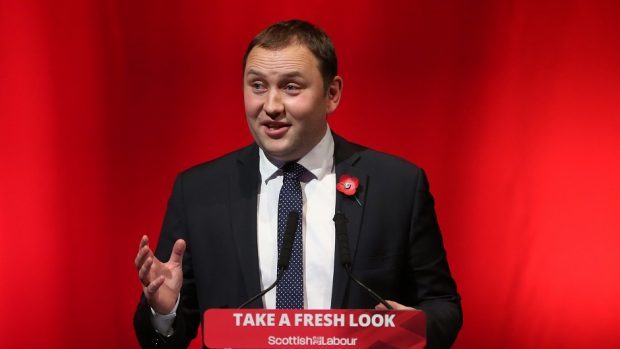On June 23, Scots will once more go to the polls to vote in a referendum. This time, however, they will be joined by millions of other voters across the UK as we decide whether we should stay in the European Union. I am determined to make a positive argument for the EU by highlighting its beneficial impact on the everyday lives of people across Scotland.
There are many reasons why we should remain in the EU – historical, practical, and economic. As I said in a recent speech in Brussels, to leave the EU would be to row against the tide of history. Since 1945, nations across Europe have forged closer links and come together to reach common solutions to common problems, keeping the peace and enhancing our collective security.
While the EU may not be perfect, there is no doubt that it has exerted a positive influence on our working lives. Guaranteed rights to paid holidays, maternity and paternal leave, equal treatment for part-time and agency workers – all these are contingent upon our EU membership, as are consumer protections such as the right to refunds on goods, cheaper mobile tariffs and travel protections to name a few.
It was right that the previous Labour government decided to keep the UK out of the Euro and Schengen, but we know that the best way to address the major challenges we face – climate change, the threat of terrorism, the migration crisis and global economic problems – is by being part of the wider EU.
As the Governor of the Bank of England recently stated, leaving the EU could lead to financial instability, higher inflation and lost jobs. Conversely, being able to trade with our EU partners, unfettered by tariffs and trade barriers, is essential to many Scottish businesses. The EU accounts for almost half of Scotland’s export trade.
Scotch Whisky, for example, supports 40,000 jobs, including 7,000 in rural areas, and adds £3.3billion to the UK economy. I recently visited a distillery in Perthshire who told me they sell vast quantities of whisky to Germany. Scottish businesses have worked hard to build these links and develop these markets. It makes no sense to turn our back on them. In fact, we should be encouraging more businesses to export to the EU.
The north-east is, of course, home to the UK’s Oil and Gas industry. Although times are tough, the region has thrived through its ability to welcome companies and workers from across the EU (and indeed the world), facilitate trade and investment, and maintain a network of supply chains spanning the country. Anything that impaired the ability to trade freely would be bad for the industry.
But perhaps the most compelling argument for remaining in the EU is that it gives the UK, and therefore Scotland, a strong voice at the top table. Our EU membership makes us a major player on the world stage, part of a single market of 500 million consumers, with the power to broker major trade deals that allow market access where otherwise it would be difficult. There are those that argue that our voice would be heard louder in isolation than it is in concord with our friends and neighbours. They are completely and utterly wrong.
Scotland and the UK are better off in the EU. Our membership creates jobs, aids growth and investment, and safeguards workers’ and consumer rights. A vote to leave would only diminish us. I argued in Scotland’s independence referendum that we were all stronger as part of the larger economic, political and social union that is the UK. Those arguments are no different when it comes to the EU.
